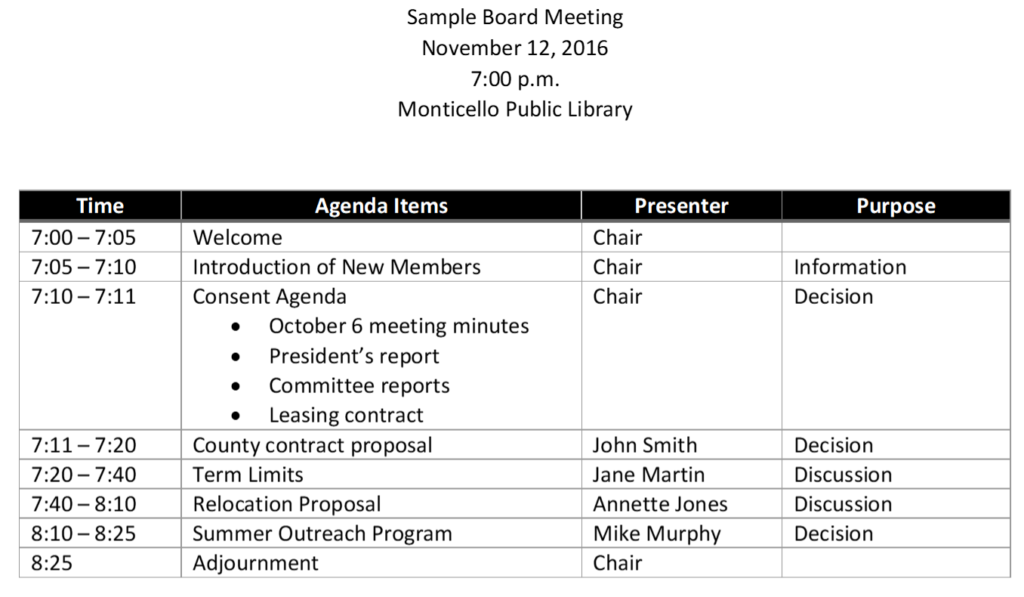Information, Discussion, or Decision? Add this column to your agendas for more effective meetings

~ by Steve Yoder, Community Development Regional Educator, Purdue Extension
If you are like me, you appreciate meetings where it feels like the group “got something done” by the time it adjourned. On the other hand, meetings where it feels like the group didn’t really do much–where you wonder if the whole thing could have just been an email–can be frustrating. Fortunately, there’s a straightforward way to tweak your agendas to help ensure that more appreciation, and less frustration, takes place by the time the group adjourns.
During meetings, three types of things usually happen: information is shared, ideas are discussed, and decisions are made. All can be important processes that move a group forward. However, meetings that are heavy on information sharing, and light on decision-making, tend to be meetings that end up in the “frustration” category. That’s because most information can be shared in other ways, like an email or report, that don’t require people to schedule a meeting. One could also argue that group discussions, while also important, can stall a group’s progress if a decision isn’t ultimately made.
One way to help make your meetings more productive, and less frustrating, is to show the purpose of each line item when you develop your agenda. The example below illustrates what I’m talking about:

By adding a column that shows whether an agenda item is for information or discussion, or whether the group is expected to decide on an issue, you can alert the participants to what’s expected at the meeting. If I were to attend the meeting in the above example, I would make sure I prepared myself to make a final decision about the consent agenda, the county contract proposal, and the summer outreach program.
Tweaking your agenda this way can help the group avoid “kicking the can down the road” or tabling the topics for another time. It also requires the meeting planners to send attendees the necessary reading materials, such as committee reports, in advance so that they can be ready to decide.
If you feel like your meetings aren’t as effective and efficient as they could be, try adding this column to your agendas. It’s a little tweak with the potential for a big payoff.



